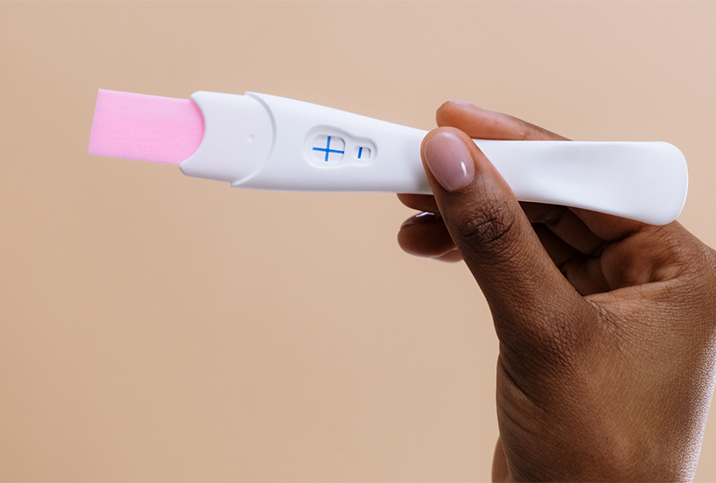6 Steps Women Can Take to Improve Reproductive Health

The lifestyle choices you make can have a major impact on your reproductive health and ability to conceive. Being healthy and active creates a nourishing environment that will help a growing fetus thrive.
If you have plans to conceive, whether in the near future or in several years, practice the following six healthy behaviors to improve and maintain good reproductive health.
1. Quit drinking
Heavy alcohol use can often lead to hormonal imbalances and can reduce the number of eggs in your ovaries, making conception more difficult. Moderate drinking is also shown to impact fertility. According to a study in Fertility Research and Practice journal, women age 30 and older who consume one to six drinks per week face more fertility problems than women of the same age who consume less than one drink per week. If you drink regularly, consider reducing your intake or stopping completely to improve your fertility.
2. Take prenatal supplements
Prenatal supplements aren't just for women who are pregnant; they can also benefit women who are nursing or planning to become pregnant. If you are planning pregnancy, the Office on Women's Health recommends taking 400 to 800 micrograms of folic acid per day to reduce the risk of spine and brain defects in your baby. Other supplements can also strengthen your immune system and prime your body for pregnancy. Ask your doctor for recommendations on vitamins you should start taking if you are ready to become pregnant.
3. Eat nutritious foods
Fruits, vegetables, beans, nuts and fish are some of the many healthy foods loaded with nutrients capable of boosting your fertility. For example, fruits and vegetables contain antioxidants, which can destroy free radicals in your body that may be reducing fertility, while high-fiber foods such as beans and whole grains can help balance your blood sugar and hormones.
Dietary fat is not generally associated with fertility risk, with the strong exception of trans fats, which have been linked to a greater risk of ovulatory infertility. Trans fats can be found in hydrogenated vegetable oils, fried and other highly processed foods, emphasizing the need to keep an eye on your diet while trying to conceive.
4. Lose excess weight
Excess weight and obesity can cause a wide range of fertility problems, including menstrual disorders, miscarriage and adverse pregnancy outcomes. According to a study in Reproductive Biology and Endocrinology journal, obesity can inhibit hormone production and thereby impact ovulatory function.
If you are overweight or obese, work with your doctor to devise a healthy weight-loss plan so you can increase your chances of conceiving. Start exercising regularly, modify your diet and aim to get more quality sleep. Your doctor can also work with you to address underlying health problems that may be contributing to weight gain or preventing you from losing weight.
5. Stop smoking
Smoking increases your exposure to free radicals that interfere with hormone levels and hormone production, making it more challenging for you to conceive. Additionally, it can be difficult for you to quit smoking if you do become pregnant. The Centers for Disease Control and Prevention (CDC) reports that smoking during pregnancy can lead to complications including ectopic pregnancy, miscarriage, low birth weight, birth defects and sudden infant death syndrome (SIDS). Stop smoking as soon as possible, and ask your doctor about effective smoking cessation treatments that are safe for both you and your baby in the event you conceive while trying to quit.
6. Address sexually transmitted infections
Sexually transmitted infections (STIs) such as chlamydia and gonorrhea can cause permanent damage to your reproductive organs, making it difficult or impossible to conceive. STIs, including HIV and hepatitis B, can also be transmitted to your baby and cause serious health problems and adverse birth outcomes. If you have any STIs, get them treated as soon as possible to improve your reproductive health and keep your baby safe should you end up conceiving.
Reproductive health problems can be caused by many factors, which can make it difficult for you and your doctor to determine the root cause of infertility. Practicing these healthy behaviors is a good start and can help you get your body ready for conception.

















